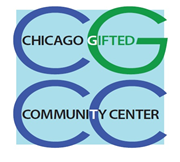
.jpg)
Sam Young from Young Scholars Academy will join us for this free CGCC back-to-school event!
Socializing has changed and continues to do so in the wake of the pandemic. While there are many confounding struggles that our students face daily, we must also recognize that socializing itself is transforming.
In this session, you will discover real, actionable advice that can help your 2e child start connecting with confidence, today! We will review 10 tips for supporting socializing.
As Jill Bolte Taylor famously said, “Most of us think of ourselves as thinking creatures that feel, but we are actually feeling creatures that think.”
The research is clear- students can’t do all the things we want if they are not developing happy and healthy attachments and forming healthy relationships.
This presentation walks participants through a strength-based, talent-focused approach to supporting twice-exceptional students on their journey to connect with others in ways they feel happiest.
The overall aim of this talk is to:
1. Empower our kiddos to socialize successfully and sustainably
2. Encourage parents and educators to inventory and challenge preconceived ideas around socializing
3. Enable parents and educators to make a personal shift so that our students can thrive
The presentation takes participants on a journey through 10 research-based strategies to accomplish the 2 aforementioned goals.
This presentation is integral in helping educators and parents check their biases and open their minds to how socializing is changing all around us. We will explore research by: Renzulli, Piaget, Baum, Kaufman, Gardner, and others
Most importantly, participants leave with 10 actionable tips that they can put to work instantly to help the twice-exceptional learners in their lives!
Learning Outcomes/Objectives
Participants will identify and inventory personal biases around socializing and will open up to a new, strength-based perspective.
Participants will explore the 10 tips and apply the framework that empowers them to take an honest look at their students’ strengths and preferences, ultimately redefining socializing.
Participants will identify direct, unconventional avenues for socializing and will declare 3 areas in which they will take action to empower their students.
